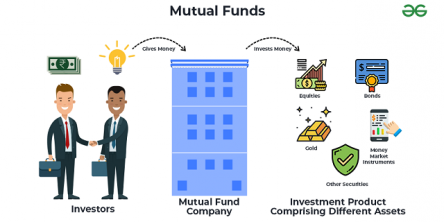Efficiency in Global Logistics: How Customs Brokerage Solutions Drive Success

In the fast-paced world of international trade, how can businesses ensure smooth and efficient movement of goods across borders? The answer lies in expert facilitation services that specialize in navigating complex regulations and optimizing supply chain processes. Let's explore how these pivotal solutions play a crucial role in driving success for businesses engaged in global logistics.
Understanding Customs Brokerage Solutions
Customs brokerage services act as intermediaries between importers, exporters, and government customs authorities, smoothing the passage of goods through customs barriers. They ensure strict compliance with local regulations and tariffs, reducing the risk of delays or penalties. Through their expertise in documentation, classification, and duty calculation, customs brokers not only facilitate seamless import and export processes but also provide invaluable guidance on navigating complex international trade landscapes.
Streamlining Compliance and Documentation
One of the primary challenges in global logistics is navigating the maze of regulatory requirements, which can vary significantly from country to country. These solutions provide expert guidance on documentation such as commercial invoices, packing lists, and certificates of origin, ensuring meticulous attention to detail.
By meticulously handling paperwork and staying updated on regulatory changes, customs brokerage solutions mitigate risks associated with compliance, enabling businesses to maintain smooth operations and uphold their reputation for reliability in international trade.
Tariff Classification and Duty Optimization
Proper classification of goods is crucial for determining applicable tariffs and duties, which can significantly impact the cost of imports and exports. Customs brokers possess in-depth knowledge of tariff schedules and trade agreements, enabling businesses to navigate these complexities with precision.
By identifying preferential tariff treatments and duty exemptions, brokers help reduce costs and enhance competitiveness in global markets. This strategic approach to tariff management ensures that businesses can optimize their duty payments legally and leverage savings to reinvest in growth initiatives.
Expedited Customs Clearance
Time is money in logistics, and delays at customs can disrupt supply chains and significantly impact customer satisfaction. These brokerage services expedite the clearance process by pre-clearing shipments, leveraging advanced electronic filing systems for swift processing, and maintaining proactive communication with customs officials. This proactive approach not only minimizes delays but also ensures the timely delivery of goods, bolstering overall operational efficiency and customer service standards.
Risk Management and Compliance Audits
Navigating international trade involves inherent risks, including compliance violations and potential customs audits that can disrupt operations. Customs brokers play a crucial role in mitigating these risks by conducting thorough compliance audits, identifying potential issues before they escalate, and swiftly implementing corrective measures. Their risk management expertise ensures strict adherence to regulatory requirements and enhances operational resilience, safeguarding businesses against unforeseen challenges in global markets.
Integrated Supply Chain Solutions
Effective brokerage extends beyond border clearance. It integrates seamlessly with supply chain management, providing crucial visibility and control over inventory movements from origin to destination. By aligning customs strategies with overall logistics planning, businesses not only enhance efficiency and cost-effectiveness but also improve their responsiveness to dynamic market demands, ensuring timely delivery and customer satisfaction.
This integrated approach enables businesses to proactively manage inventory levels, optimize transportation routes, and adapt quickly to changes in global trade regulations, thereby maintaining a competitive edge in the marketplace. As businesses continue to expand globally, the synergy between brokerage and supply chain management becomes increasingly pivotal in driving operational excellence and achieving sustainable growth.
Technology and Innovation in Customs Brokerage
Technology and innovation are reshaping the landscape of customs brokerage. Automated systems for customs clearance, combined with advanced real-time tracking capabilities, enable businesses to monitor shipments closely and proactively address any potential delays or issues.
Moreover, the integration of data analytics provides valuable insights into supply chain performance, empowering businesses to optimize processes and reduce operational costs. Embracing these technological advancements not only drives efficiency gains but also strengthens competitive advantage in the global marketplace.
Strategic Partnerships and Global Reach
Success in global logistics often hinges on strategic partnerships and a robust network of international agents. Customs brokers leverage their global reach and industry connections to navigate regulatory complexities across diverse markets. This global perspective enables businesses to expand their market reach and capitalize on emerging opportunities.
Customs brokerage solutions are indispensable for achieving efficiency and success in global logistics. From ensuring compliance and expedited clearance to optimizing supply chain operations and leveraging technology, these services play a critical role in driving operational excellence and competitive advantage. Businesses that invest in professional brokerage solutions streamline cross-border transactions and position themselves for sustainable growth in a complex global marketplace. Adopting these solutions is more than simply a matter of compliance; it is a strategic need for firms looking to flourish in global trade.
Similar Articles
Save money on home & business essentials with bulk wholesale! Discover tips, product categories, and deals to maximize your savings.
Loud budgeting has taken over social media, with people openly discussing spending habits, saving strategies, and financial struggles. While this trend encourages transparency, it also adds pressure to meet certain expectations
Securing your financial future has become a necessity in today's world, and investing in mutual funds is one of the most popular ways to grow your wealth over time. Managing your money and investing in potential funds has become convenient and seamless with the help of the right online platforms
Gone are the days when you had to carry a wallet full of money when traveling somewhere. Now, cashless travel has become a reality due to technological developments, making it easier for travelers to manage their cash when they’re out and about.
Discover how ACH and eChecks revolutionize payments—offering cost-efficiency, security, and convenience while addressing cybersecurity challenges and future trends.
NPS (National Pension Scheme) is a popular option for those looking to save for retirement and get a steady income through an annuity after retirement. It is supported by the Indian Government and is based on contributions made regularly. The final pension will depend on the money that you build by the time of retirement and the portion used to purchase an annuity.
Debt collection can be stressful for both the debtor and the creditor. Howеvеr, undеrstanding thе tactics commonly usеd by dеbt collectors can help you protеct yoursеlf from potential lawsuits. Whether you’re a business owner collecting unpaid invoices or an individual dealing with personal debt, being informed about the legal and ethical boundaries of debt collection is crucial.
Managing cash flow is critical for any business's survival and growth. It involves tracking the money coming in and going out of the business to ensure it can meet its financial obligations.
In the fast-paced world of finance, it can be hard to keep up with the latest advancements in technology. But for financial planners, staying ahead of the curve is crucial.









